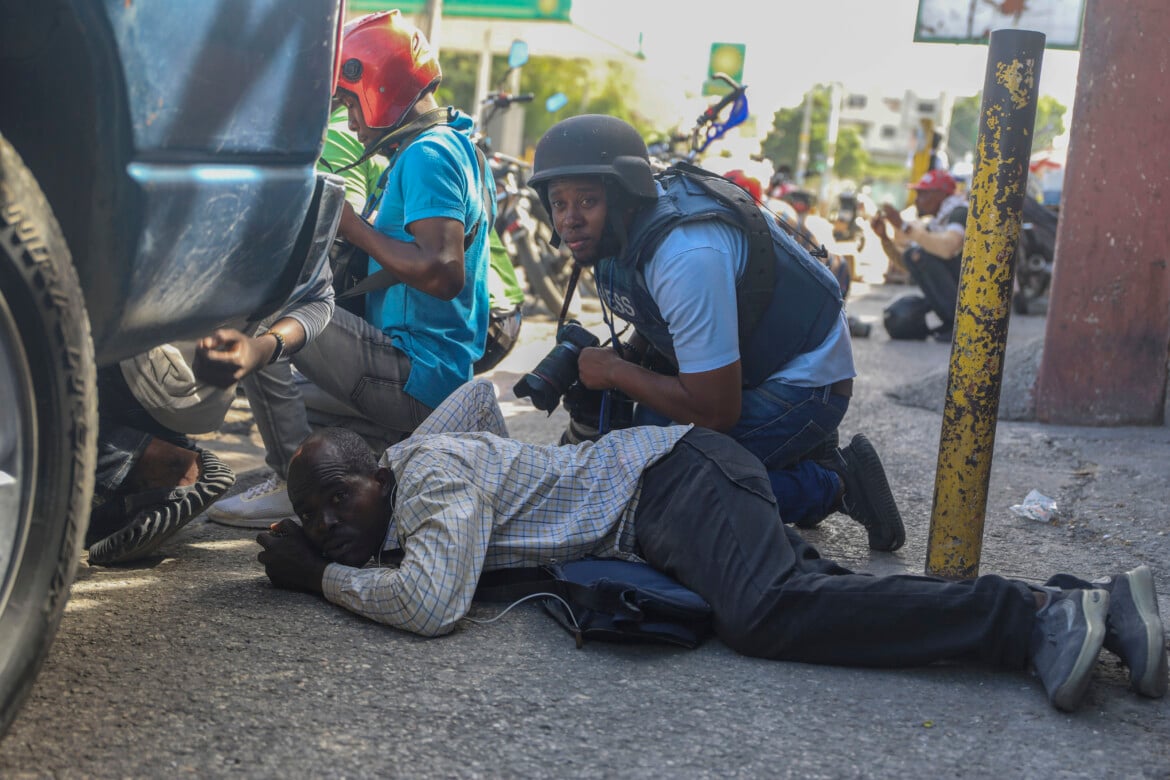Analysis
Port-au-Prince ruled by criminal gangs: the multinational mission is not enough
Gangs, banded together under a former cop known as ‘Barbecue,’ have unleashed a new wave of violence in the capital, against which the meager and limited operations conducted by the multinational force and the Haitian police have proved totally ineffective.

As the popular movements predicted, the much-touted Multinational Security Support Mission in Haiti is proving to be completely irrelevant: despite the deployment of Kenyan security forces at the end of June, which have since been joined by military contingents from other countries, criminal gangs still control 80 percent of Port-au-Prince, sowing more terror among the population than ever before.
Since mid-November, the gangs that banded together into the Viv Ansanm (“Living Together”) coalition, led by former policeman Jimmy Cherizier, known as “Barbecue,” have unleashed a new wave of violence in the capital, against which the meager and limited operations conducted by the multinational force and the Haitian police have proved totally ineffective.
The civilian population has borne the brunt as usual, forced to leave their homes and abandoned by everyone, including the United Nations, which is evacuating a large part of its staff from Port-au-Prince since not even the minimum safety conditions are present. It’s the same with embassies, consular offices and NGOs, including Doctors Without Borders, which suspended all its activities in the capital following the attack it suffered on November 11: a group of armed men stopped an ambulance, held some staff members hostage and killed two of the three patients on board.
The most vulnerable, however, are the children: according to UNICEF's latest estimates, the recruitment of children by armed groups has increased by 70 percent in the past year: about half of the members of the criminal gangs are estimated to be minors, victims of escalating violence, generalized poverty, lack of access to education and the collapse of essential services.
The desperate civilian population can find no other solution but to take justice into their own hands, often with the blessing of the police, committing heinous crimes against gang members, who are killed with machetes, stoned, beheaded, burned alive and even buried alive.
According to the National Human Rights Defense Network, between November 17 and 19, 108 alleged Viv Ansanm members died in the clashes. Two days later, the state security forces had been on the verge of capturing Barbecue, but he managed to escape, leaving one of his Kalashnikovs behind.
Shortly before, in an interview with Canadian youtuber Chris Must List, the very powerful leader of Viv Ansanm had once again demonstrated his rhetorical skills, focusing on issues that are important to the Haitian people: denouncing the corruption of the political system, the responsibility of the United States, Canada and France in the crisis of the country that was once nicknamed “the pearl of the Antilles,” the vindication of national sovereignty and the right of every Haitian to water, health and schooling.
The fact that Haiti's most vicious criminal is vying for public support by invoking these sacrosanct principles says a lot about the situation in the country, which is currently led by a Transitional Presidential Council (TPC), set up after an agreement among the main political forces under the supervision of the Caribbean Community (CARICOM), and a prime minister appointed by the TPC. However, since the Transitional Council took office last April, its seven voting members have spent most of their time fighting over control of the body (whose members take turns in the role of chairman).
The problems continued even after the appointment of the prime minister, physician Garry Conille, formerly UNICEF's regional director for Latin America and the Caribbean, who after just five months was sacked by the TPC over irresolvable differences (with both sides accusing the other of corruption) and replaced with businessman Alix Didier Fils-Aimé.
Conille’s dismissal also set off a diplomatic incident with Macron, who sided with Conille and called Haitian leaders “complete idiots” – a statement that aroused universal anger throughout the country, which has had a score to settle with France since its independence in 1804 (due to the unjust reparations that Haiti had to pay to the French).
Originally published at https://ilmanifesto.it/port-au-prince-e-delle-bande-criminali-la-missione-multinazionale-non-basta on 2024-11-27
